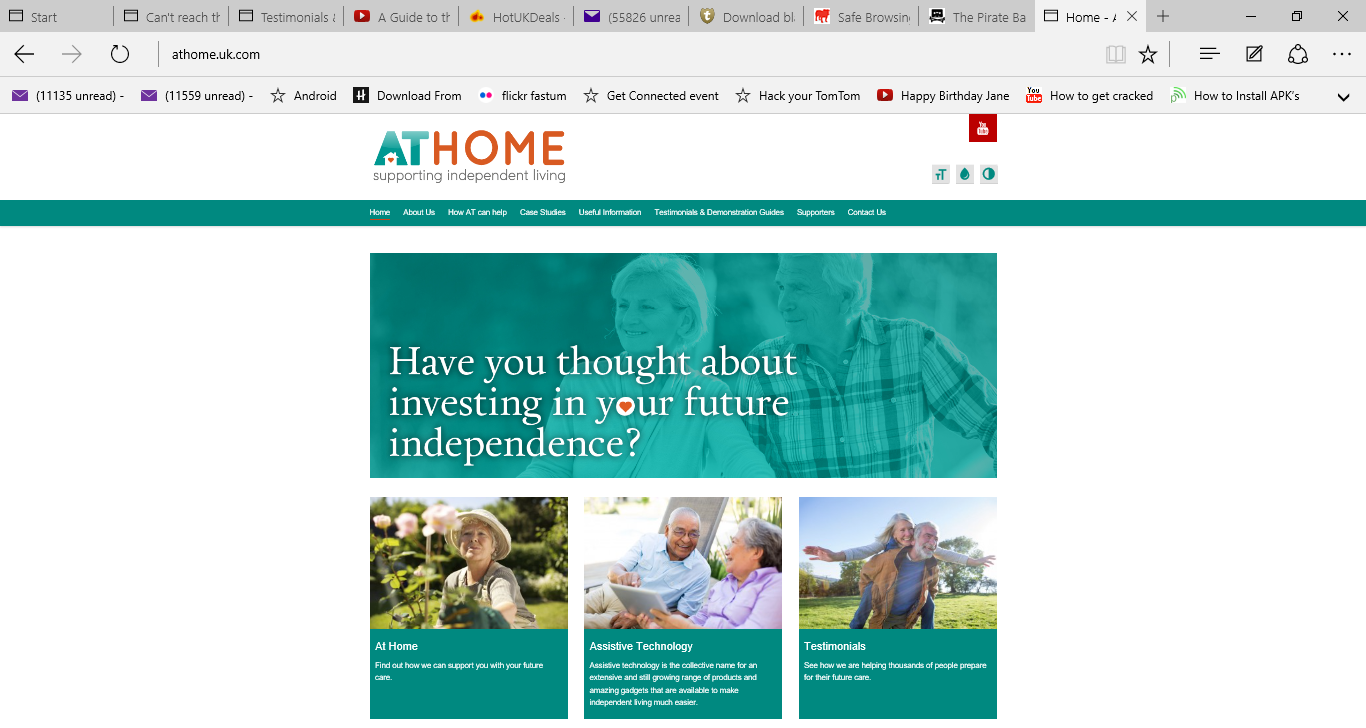The campaign aims to encourage people to think about how independent living and mobility equipment, also known as assistive technology, http://www.athome.uk.com/case-studies/ can help you, or someone you care for, to continue to live independently in a healthy and safe environment at home.
The world in which we live and work is changing rapidly. Services are under pressure. Increasing demand for health and social care within limited funding require us to think differently and to do things different from the way we have done things traditionally.
We need to work and commission smarter, in an integrated way, making the best use of the resources available and work with people to maximise their abilities to self-care, to live longer and healthier lives in their own homes and delay and defer the need for hospital and long term care. Research has consistently confirmed that awareness of assistive technology is very low, held back by a combination of factors.
A recent study led by Coventry University found that 60% of consumers questioned said that lack of awareness was a barrier to greater use/purchase of assistive technology. However the same research also found that 85% felt that the costs of purchasing were worth it given that it would make life easier*. In England almost a third of the population are aged 55+ and an estimated 4.7m people aged 65+ have a limiting longstanding illness that affects them in some way; this equates to 48% of all people aged 65+**.
In many instances assistive technology, when used as part of a wider package, can help maintain independence, enabling people to live longer in their own familiar home surroundings, thereby potentially helping to avoid having to consider moving into specialist housing or a care home in later life.
Watch the examples in these short video clips http://www.athome.uk.com/testimonials-2/ Joyce shares her experience of single handed care
https://youtu.be/wTGyNhfnZ5E
Working with technology we an opportunity to work towards better health and social care outcomes through increased prevention and supported self-care. One of the great advances in recent years is the way we can share information on the internet and through mobile phones.
Here users and carers talk about some technology which prompts and reminds people in a range of ways https://www.youtube.com/watch?v=R1kGUqEPmog&feature=youtu.be.
Sharing information empowers people to make more informed decisions based on understanding the consequences from lifestyle choices, what sorts of advice and guidance is available to help us live more independently https://youtu.be/eMe8YHEabJU and if we are carers to know what support and advice will help us care for longer.
Simple examples are using web resources like http://asksara.dlf.org.uk/, www.coventry.ac.uk/fallcheck and http://www.athome.uk.com/ to improve our knowledge of assistive and independent living technologies and use this to shape our work.
Have a look and feel free to share your own examples. Let’s make a difference together!
*Based upon research conducted as part of Coventry University’s COMODAL project (www. http://comodal.co.uk/)

